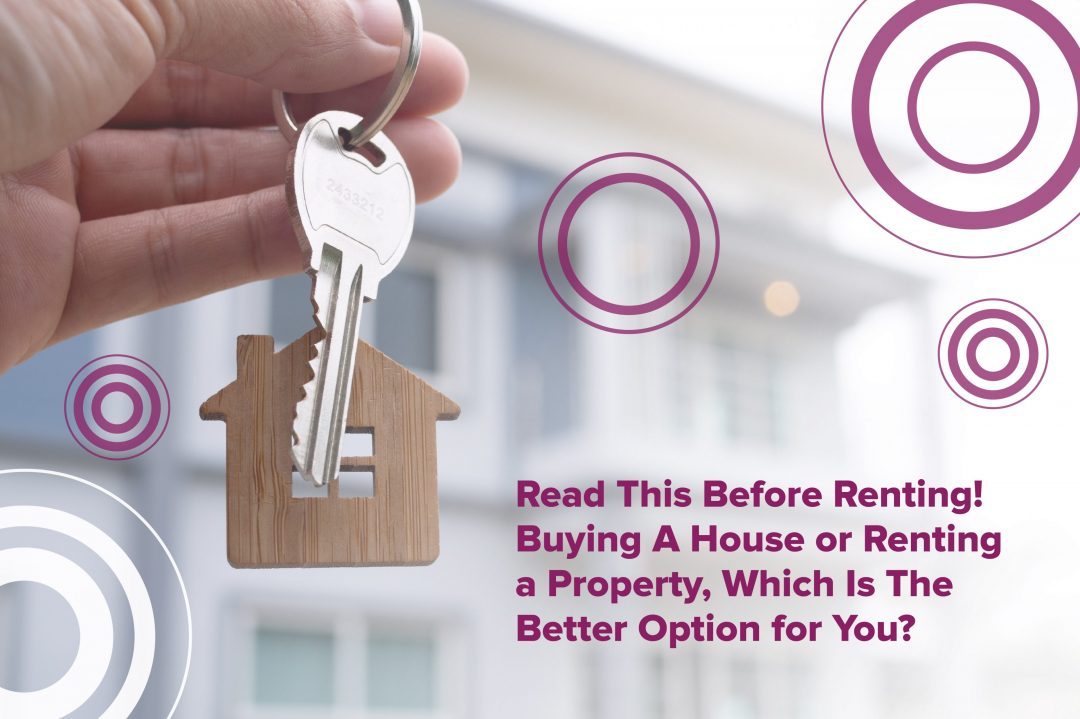| Buying a home is a major milestone and for many, a dream come true. After all, it is deemed as a good investment and believed to be a better option than renting a place for a long time. While there’s a lot of truth in it, renting could surprisingly bring more advantages than buying a house, depending on your lifestyle and financial health.
If you’re one of those who are thinking whether you should buy a home or continue renting, read on. Let’s explore the benefits and downsides of each so you can decide better based on your unique needs. Buying a Home 1) A sense of security and stability Buying a home, as we’ve said earlier, feels like a dream come true. It’s understandable as culture dictates that this is one of the things you need to tick off your list whenever you’re capable enough to buy your property. And true enough, homeownership has a lot of intangible benefits. It gives you a sense of stability, security and accomplishment. 2) Build your equity Home equity is the difference between your home’s current market value and what you owe on your mortgage. For example, if your home is worth $900,000 now and you owe $800,000 on your mortgage loan, then you’re able to build $100,000 equity. As a homeowner, you can capitalise on the equity your home accumulates over time. You can choose to redraw on your loan, borrow on top of your equity with an additional advance or do mortgage refinancing. 3) Control and creative freedom over your home When you rent, you’ll probably need your landlord’s permission should you decide to renovate and achieve your dream home interior or style. But when you buy a home, you can exercise creative freedom and control over your own property whenever you want to. You can go ahead and paint the walls with pastel colours without worrying that your landlord won’t like it. Renting a Home 1) Flexibility Renting offers the flexibility that buying a home can’t. Want to move to a bigger home or need to transfer location? You can always negotiate with your landlord. You can also move without penalty whenever your lease ends. Plus, you can always choose to downsize as needed at the end of your lease. However, this flexibility also poses some risks. In rare cases, your landlord can easily increase your rent depending on your rent. Or worse, the owner can sell the property and you would need to leave immediately. 2) Predictable monthly expense When you decide to rent, your housing fees become more predictable. It’s simple, you just pay the agreed upon monthly dues every single month. You may only face rent increases whenever your lease is up for renewal. On the other hand, when you own a home, you have to prepare for home maintenance expenses (just in case you need a new roof or the pipes started leaking!) on top of your monthly mortgage and regular bills. 3) Less risks and no property taxes Just like any other investments, home buying comes with risks. For instance, we saw housing values hit new lows in 2020. Mortgage rates are rising too. When you rent, you don’t have to worry about these statistics and there are less risks. And the other good news is, you have no property taxes to think about. These taxes are one of the major expenses that can come with home ownership and they vary per state or country. Rent or buy: which is the better option for you? There’s no one size fits all approach when it comes to major decisions that can affect your finances. To help you decide, consider the following questions and some recommendations:
Once you’ve settled your answers to these questions, you’ll be able to make a more sound decision. However, if you’re still confused, remember that help is available. You can always ask for advice from finance and property investment experts to help you maximise your money. |
| Get tailored advice for you, from finance experts
When it comes to your financial decisions, the right advice is critical. At Ripple Finance, we offer several quality finance solutions focused on assisting you in maximising your investment opportunities. We understand that each need is unique, and we strive to find suitable solutions accordingly. |
